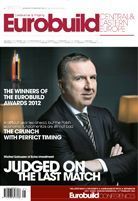Ewa Andrzejewska, Eurobuild CEE': How do you measure a company's success?Michał Sołowow: This is a complex and extensive question. In my opinion different measures should be applied for different companies at the various stages of their development. These measures are of course the figures that describe their worth. For a company that develops and invests rapidly, the measure of success will be its EBITDA, whereas for a business entity developing in a stable manner and that has a significant share of the market the gauge will be its EBIT and cash flow. The measure of success of companies that have achieved a high level of development will be the amount of dividends paid and the growth in the value of their stock.
Are such factors as completed projects or the company's reputation, not to mention human capital, of no significance at all? The world is developing very dynamically. Everything is happening very quickly, faster and faster, and companies - just like sportspeople - are jud




























































